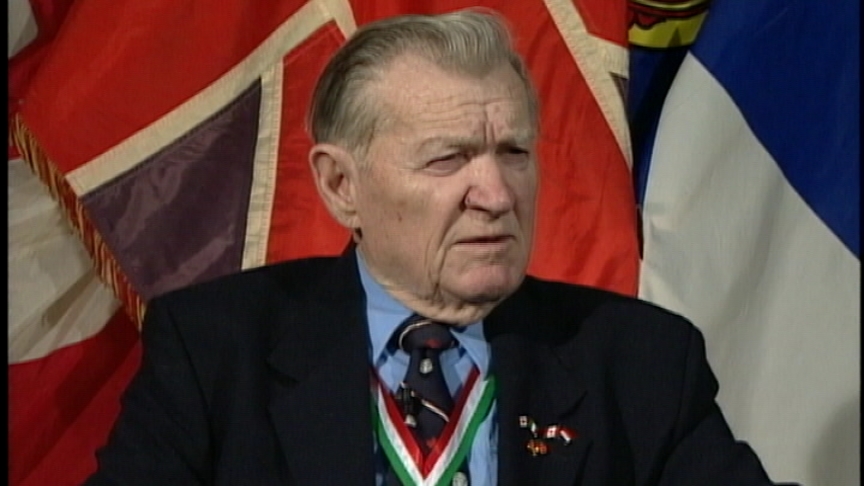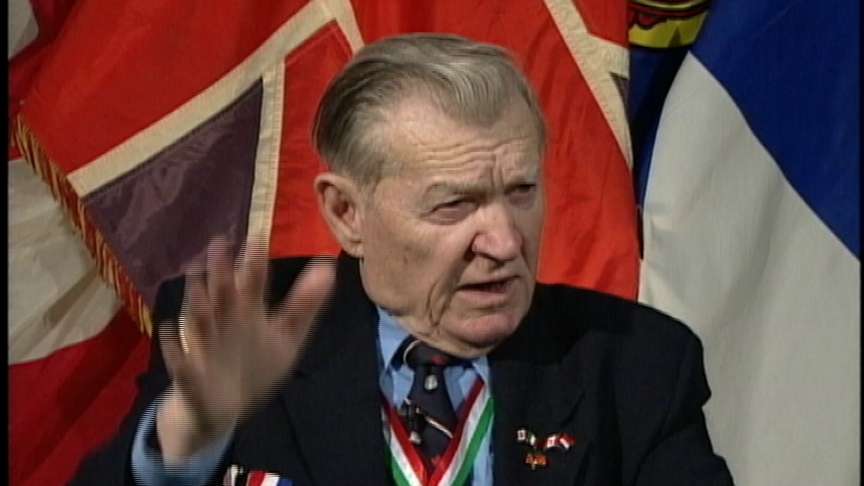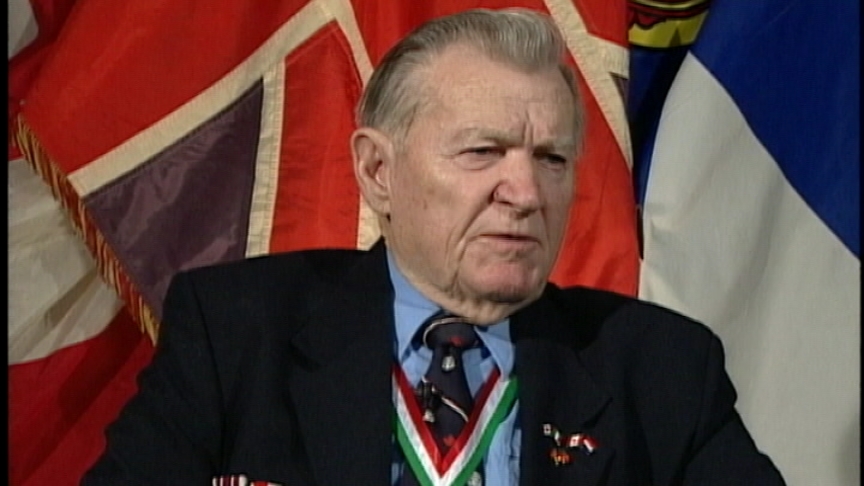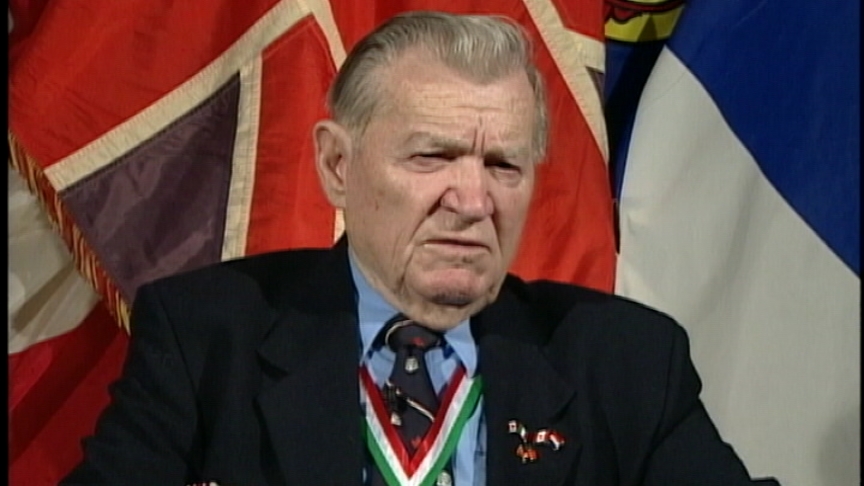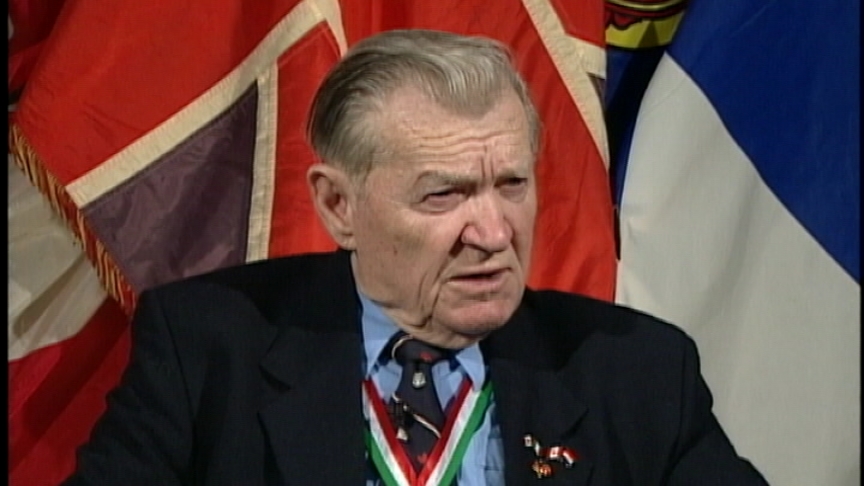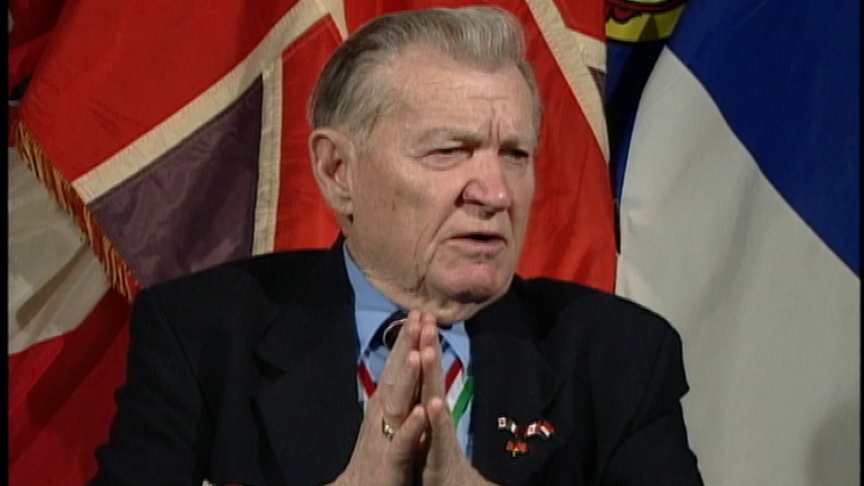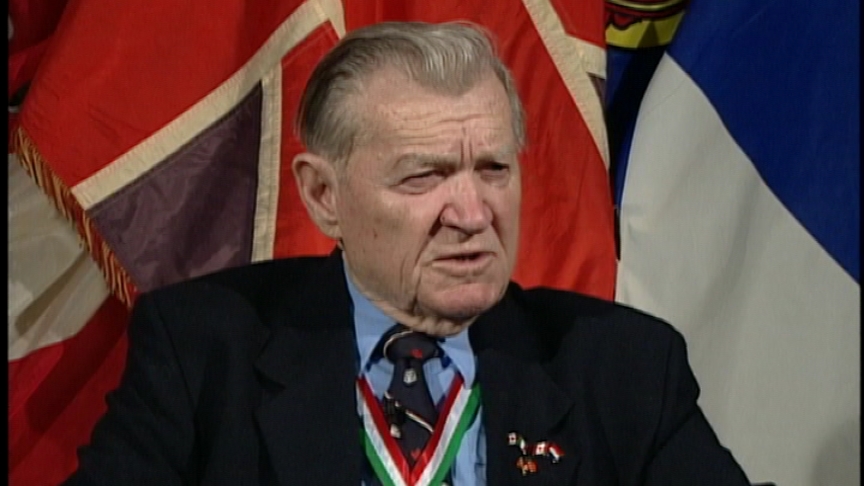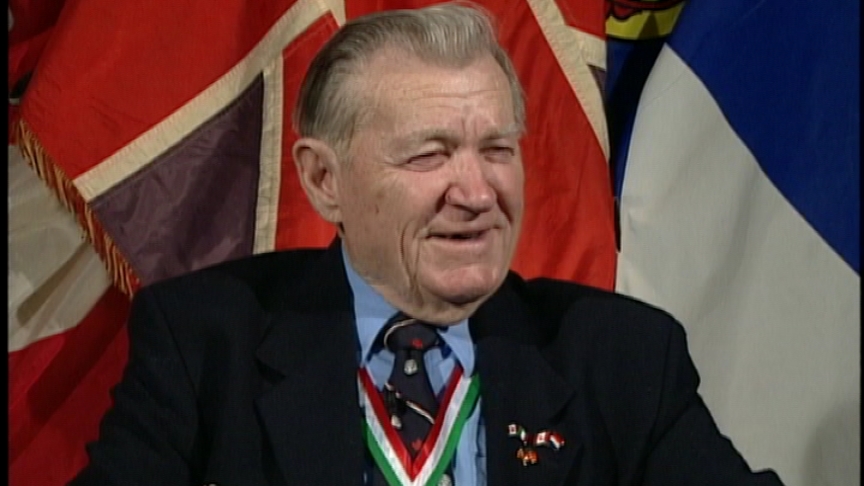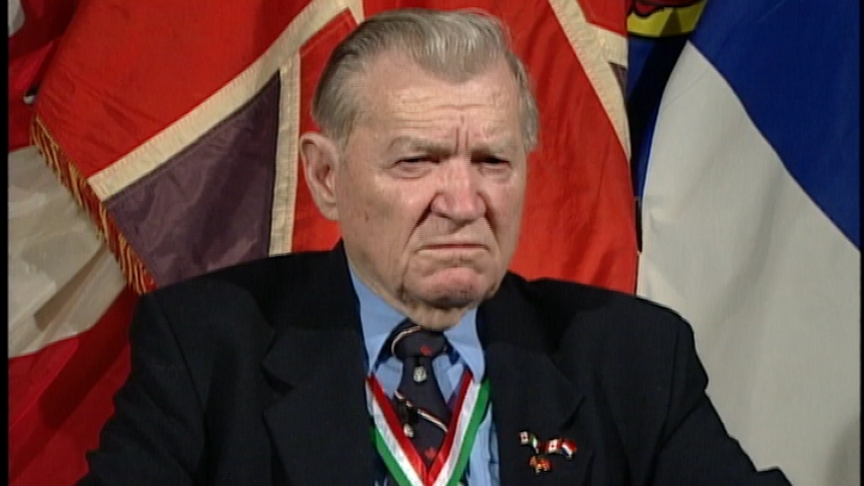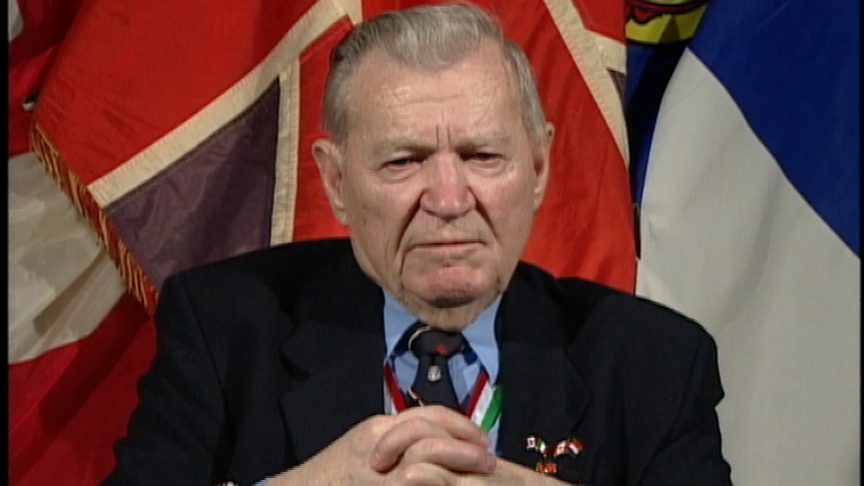The Way Home
Heroes Remember
The Way Home
Transcript
Description
Though he had been wounded twice and had been through some tough times, Mr. McInnis still felt awkward going home. He tells us why.
Alexander McInnis
Mr. McInnis was born in Port Hawkesbury, Nova Scotia, on September 7, 1919. His father was a section man for the CNR. He was the 3rd in a family of six (four brothers and one sister) of which his sister was the eldest. He joined the Cape Breton Highlanders without telling his parents when he was 20 years old. His four brothers also joined the forces. He started training in Baddeck, Nova Scotia, and then Victoria Park in Sydney until joining the West Nova Scotia Highlanders Regiment. He went overseas May 12, 1940, and trained in Aldershot for three years. In 1943 he was sent by convoy to partake in the invasion of Sicily. After helping to free the town of Agira, he was sent across to southern Italy. After taking part in the Battle of Ortona he was wounded and ended up in the hospital in England for seven months. He then moved on to France, with the Royal Hamilton Light Infantry Division. After five more months of fighting in France and Holland where he helped in freeing the port of Antwerp, he was sent home to Canada.
Meta Data
- Medium:
- Video
- Owner:
- Veterans Affairs Canada
- Duration:
- 03:20
- Person Interviewed:
- Alexander McInnis
- War, Conflict or Mission:
- Second World War
- Location/Theatre:
- Europe
- Battle/Campaign:
- Italian
- Branch:
- Army
- Units/Ship:
- Royal Hamilton Light Infantry 2nd Division
- Occupation:
- Three Inch Mortar Man
Related Videos
- Date modified:



